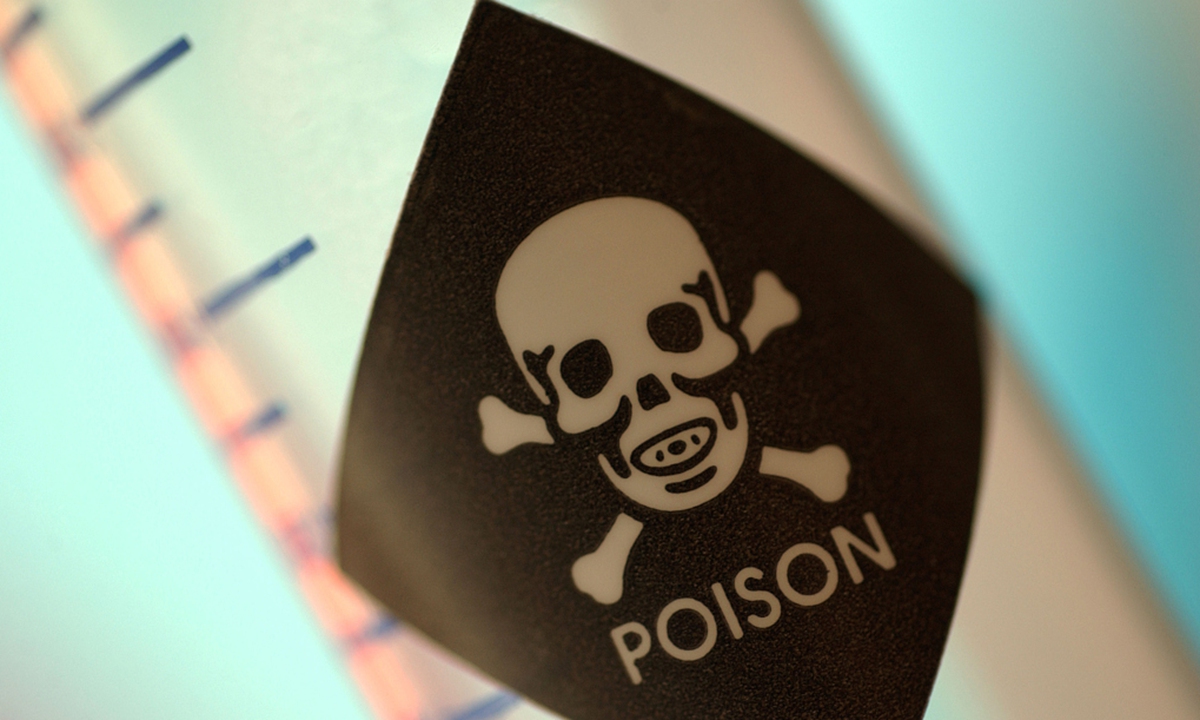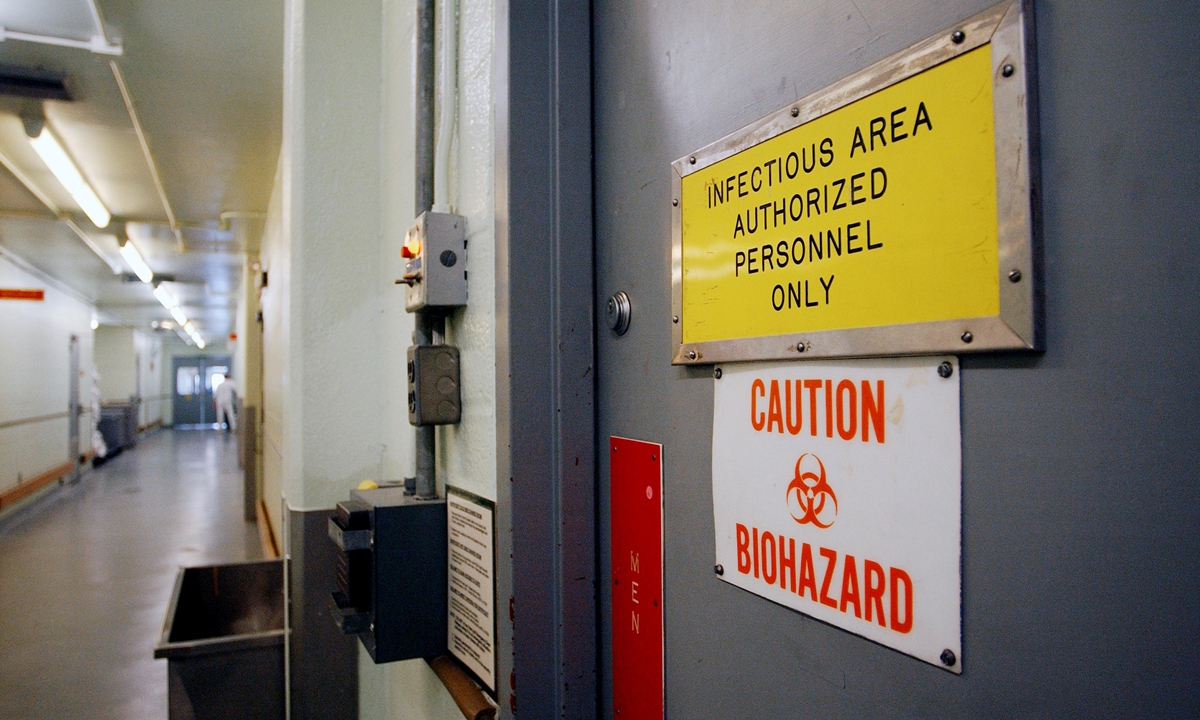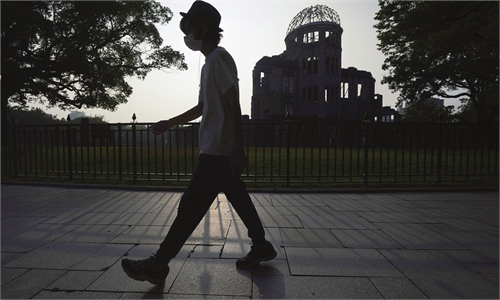US deployment of bio-labs around the world creates security dilemmas in vulnerable regions: observers

Photo: CFP
The world should be alerted to the continuing deployment of biological and chemical weapons laboratories by the US around the world, which shows its heightened cold-war mentality is causing security dilemmas in vulnerable regions, observers noted.
British journalist Jon Mitchell's new book "Poisoning the Pacific" shows how for decades the US military's work on bio-weapons has caused serious contamination in the Pacific islands under its control.
The book details how the use of chemical weapons such as radioactive substances, nerve agents, and Agent Orange by the US military, has contaminate vast areas of the Western Pacific and harmed people working in its laboratories.
A Russian biologist has also been highly critical of US malfeasance, calling for strict controls over the US military's labs to reduce the further risk of contamination.
The US has set up bio-labs in 25 countries and regions in the Middle East, Africa, Southeast Asia and countries of the former Soviet Union, with 16 in Ukraine alone, according to media reports. Some places where the labs are based have seen large-scale outbreaks of measles and other dangerous infectious diseases, reports indicate.
USA Today reported that since 2003, hundreds of incidents involving accidental contact with deadly pathogens have occurred in US bio-labs in the US and abroad. People who come in direct contact with the pathogens can become infected, and then spread a virus to communities and start an epidemic.
According to the report of the Korea Herald in April 2019, the Pentagon in May 2015 confirmed that a US' laboratory in Utah had "inadvertently" sent live anthrax samples to one of its military bases in South Korea.
Local residents poured into the street to express fear of the possible biological agent experiment, reports show.
The US' bio-lab deployment in former Soviet countries such as Georgian and Ukraine are notable, said Dmitry Medvedev, deputy chairman of the Russian Security Council. US research activities in bio-labs in members of the Commonwealth of the Independent States have caused grave concern, he said. "The United States not only builds bio-labs in these countries, but also tries to do so in other places across the world. Its research lacks transparency and runs counter to the rules of the international community and international organizations," Medvedev said.
The main purpose of US deployed bio-labs around the world is to maintain and expand its overseas interests and consolidate its hegemonic position in the world, Zhou Zhanggui, a researcher in non-traditional security and peaceful development studies from Zhejiang University, told the Global Times.

The US Army Medical Research Institute of Infectious Diseases at Fort Detrick Photo: AP
The layout of these bio-labs is based on the international patterns formed after World War II. The US established military bases and assorted bio-labs at key geopolitical points to carry out scientific experiments closely related to the military, seeking to upgrade its strike and defense capabilities over bio-weapons. They target and deter their imaginary enemies, including old opponents like Russia and potential new ones, said Zhou.
Although many US's overseas bio-labs have experienced high-risk events, such as the release of virus strains, which have caused damage to local populations, through "carrot and stick" tactics, especially offering economic and military assistance, Washington urges the host country to make concessions and forces them to acquiesce to their threatening presence in local areas, Zhao said.
The vast Pacific Ocean is not a place for the US military to test its poisons and dump its wastes, Zhao Lijian, spokesperson of the Chinese foreign ministry, said in a press conference on October 14 in response to the Global Times' question about the US military contamination of the Pacific islands.
"As the only country that owns chemical weapons stock, the US has been dragging its feet in destroying these chemical weapons and resistant to fulfilling its duties, thus becoming the biggest barrier to a world free of chemical weapons. Is there anything the US would like to say about this?!" he asked.
The US has not joined the Convention on Biological Diversity, has not ratified the Kyoto Protocol, withdrawn from the Paris Agreement, and denied its binding quantified emission reduction commitments.
If careful investigation or monitoring is carried out in accordance with a treaty with broad implications, more details about the murky nature of US bio-labs will be revealed, resulting in greater panic and rage among local people in host countries, said Zhou Zhanggui.
The US continues to perpetuate a Cold War mentality, creating security dilemmas in vulnerable regions, Zhou said. If other countries follow America's lead and seek to deploy more biological laboratories as part of an arms race, it will inevitably lead to possible devastating conflicts, he said.


